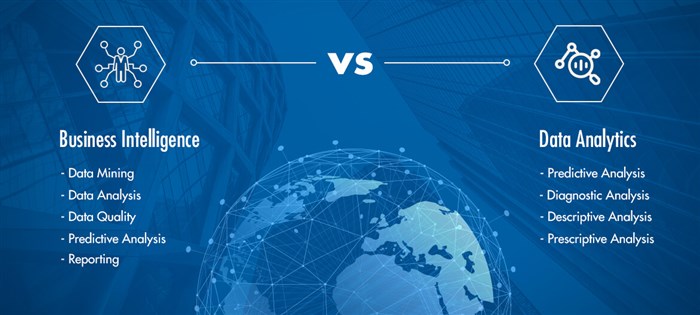The Canadian technology industry in 2025 is one of the fastest growing sectors in the world, creating thousands of opportunities for skilled professionals in different areas of tech. With global companies setting up headquarters in cities like Toronto, Vancouver, and Montreal, Canada has become a hub for innovation, digital transformation, and artificial intelligence. The demand for top talent is higher than ever, making tech jobs some of the most secure and well paid career paths in the country.
In this ranking of the top ten best tech jobs in Canada for 2025, attention is given to careers that combine high salaries, long term growth, and relevance in today’s job market. From artificial intelligence engineers to cloud computing specialists, data scientists, cybersecurity analysts, blockchain developers, and software engineers, these roles are shaping the future of Canada’s digital economy. Tech professionals in these positions are driving innovation in industries such as finance, healthcare, e commerce, and smart city development.
For job seekers and students planning their careers, this list provides insights into the most in demand roles that employers are hiring for right now. With Canada’s immigration programs welcoming skilled workers and companies offering competitive salaries, benefits, and opportunities for career growth, tech jobs in 2025 remain the best choice for a stable and rewarding future.
Here Are The Top Ten Best Tech Jobs In Canada 2025
10. E commerce Developer and Web Platforms Specialist

E commerce developers build the digital storefronts that turn browsers into buyers. In Canada in 2025 companies large and small are investing in richer product pages, faster checkout flows and tighter integration between marketing, inventory and payments. That means specialists who can deliver strong user experience across mobile and desktop and who understand performance optimisation, secure payment integration and search engine friendly page structure are in demand.
Work spans implementations on Shopify, BigCommerce and custom platforms where developers pair front end craft with back end logic and API work. Employers value people who measure results and who can translate traffic metrics into conversion improvements. Remote tech jobs for web platform specialists are common making it possible to work for Toronto or Vancouver firms from smaller cities. Typical mid level roles sit in a broad band of pay that depends on ownership of platform and scale of traffic. E commerce development work is attractive because results are visible in sales metrics, product teams are collaborative and there is frequent opportunity to own features that move revenue and retention.
9. Mobile App Developer for iOS Android and Cross Platform

Mobile app developers design and ship software that people use every day on their phones. In 2025 demand remains strong for engineers who can move between native code and cross platform frameworks such as Flutter and React Native. Jobs range from consumer facing apps in fintech health and entertainment to enterprise apps that connect field teams to backend services. Employers want developers who can optimise battery use and memory management produce smooth animations and handle app store deployment and review.
Mobile security and privacy practices are essential given tighter regulation and higher user expectations. Teams favor developers who test on real devices and who quickly iterate on user feedback. Salary depends on experience city and industry with high paying roles concentrated in Toronto Vancouver and Montreal. Mobile roles often offer a product focus where a developer sees user behaviour and metrics and can shape roadmap decisions. For many employers mobile expertise pairs well with backend API skills and knowledge of analytics and app growth techniques.
8. Business and Systems Analyst with tech focus

Business analysts translate business priorities into technical requirements and practical roadmaps. As organisations undergo digital transformation in 2025 analysts who can map current processes analyse user needs and write clear user stories bring measurable value. This role bridges stakeholders product teams and engineering teams and often includes data work such as SQL querying and building dashboards that guide decisions. Demand is driven by projects that automate workflows adopt cloud based tools or embed analytics into operations.
Employers prize experience with Agile ceremony facilitation process modelling and practical testing strategies. Business analysts frequently move into product roles or program leadership because they understand both business outcomes and delivery constraints. Compensation varies by sector and complexity of projects but experienced analysts are sought after in finance health and government. The job appeals to people who like structured problem solving stakeholder management and seeing digital tools change how organisations work.
7. DevOps Engineer Site Reliability and Infrastructure Automation

DevOps engineers make software delivery reliable repeatable and fast. In 2025 the rise of containerised applications and cloud native patterns means teams need engineers who can construct continuous integration and continuous delivery pipelines automate infrastructure with tools such as Terraform and monitor systems so incidents are detected and resolved quickly. Site reliability work focuses on availability and capacity planning while DevOps tasks often include scripting build automation and improving developer tooling.
Employers look for people who can bridge development culture and operations mindset and who can reduce toil through automation. Skills in Kubernetes cloud platform services and observability tooling are especially valuable. Salaries for DevOps roles reflect the responsibility for production systems and for scaling services and many teams reward deep automation experience. The role is well suited to engineers who enjoy operational problem solving and who like building systems that make teams more productive.
6. Cybersecurity Specialist Analyst and Penetration Testing Roles

Cybersecurity specialists protect organisations from breaches and make sure systems meet regulatory requirements. Work covers threat detection incident response secure architecture and penetration testing. In 2025 demand continues to grow as more workloads live in the cloud and remote work raises the attack surface. Employers look for hands on experience with SIEM tooling network security endpoint protection and for people who can run red team exercises and then translate findings into concrete remediation plans.
Certifications and practical labs can accelerate hiring though real world experience remains the strongest signal. Salary ranges differ by role and by level of responsibility with senior analysts and testers attracting premium compensation especially in regulated industries such as finance and healthcare. The role is attractive for people who enjoy adversarial thinking continuous learning and being at the centre of organisational risk management.
5. Data Scientist Data Analyst and Business Intelligence Engineer

Data professionals turn raw information into business answers. Data scientists build models that forecast demand segment customers and power recommendation systems while business intelligence engineers focus on reliable pipelines and clear dashboards for decision makers. In 2025 demand is strong across retail finance health and public sector as organisations look to machine learning predictive analytics and real time reporting to gain advantage.
Employers want experience with Python or R SQL and with productionising models so they can run at scale. Knowledge of data warehousing and tools such as Tableau or Power BI is highly valued because it shortens the path from analysis to action. Compensation varies by the role technical depth and the scale of data but experienced practitioners command competitive packages. The job suits people who enjoy statistics coding and storytelling through data and who want to influence product strategy and operational performance.
4. Cloud Engineer and Cloud Architect

Cloud engineers design and operate the infrastructure that runs modern applications. The move to cloud computing in 2025 means engineers who can migrate workloads design secure and cost efficient architectures and implement automation are essential. Work involves selecting between providers setting up networking and identity controls optimising cost and ensuring reliability and disaster recovery. Cloud architects focus on system level trade offs while cloud engineers implement and operate the chosen design.
Skills in AWS Azure or Google Cloud container orchestration and infrastructure as code are frequently required. Organisations reward experience that reduces cost and improves uptime and those who can translate business priorities into an executable cloud strategy are particularly valued. Career paths include deep technical leadership or platform and architecture roles that shape how software is built across the company.
3. AI and Machine Learning Engineer

AI and machine learning engineers develop models that automate tasks personalise experiences and extract signal from noise. In 2025 the focus on generative AI natural language processing and production ready machine learning has created strong demand for engineers who can move from research prototypes to scalable deployments. Typical work includes data preparation modelling experimentation and creating inference services that meet latency and privacy constraints.
Employers expect solid foundations in Python and in frameworks such as TensorFlow or PyTorch and an ability to evaluate model performance and fairness. Roles exist across healthcare finance retail and research organisations that partner with academia. Compensation levels are high especially when models are part of core product features and when engineers can demonstrate improvements in accuracy latency or cost. The field rewards continuous learning and offers opportunities to publish contribute to open source or lead data driven product decisions.
2. Software Engineer and Full Stack Developer

Software engineers build the systems users rely on every day. Full stack developers who can work across front end user experience and back end services are particularly valuable because they reduce handoffs and speed delivery. In 2025 software engineering remains the largest pool of tech hiring with employers seeking proficiency in languages such as JavaScript Python and Java frameworks for building resilient scalable services and familiarity with API design and testing.
Strong engineers also understand maintainability observability and automated testing so teams can ship safely. Compensation is competitive and top talent often has flexibility around remote tech jobs and hybrid work arrangements. Software engineering career paths lead into technical leadership architecture or product focused roles and the work rewards people who like system design debugging and continuous improvement.
1. Cybersecurity Manager Chief Security Architect and Security Leadership
Senior security roles combine technical depth with strategy and governance. Organisations in 2025 need leaders who can build security programs manage risk and align security initiatives with business goals. Responsibilities include threat modeling security architecture oversight incident response planning and compliance with privacy regulations. As cyber attacks grow more sophisticated and as regulatory scrutiny increases demand for security leadership rises especially in finance healthcare and critical infrastructure. Successful leaders translate technical risk into board level language design robust identity and access controls and ensure secure cloud posture across teams. Compensation reflects the responsibility and the scarcity of seasoned leaders who have both hands on technical experience and proven management skills. These roles are attractive for people who want to shape enterprise level security posture influence organisational resilience and build teams that protect vital assets.

